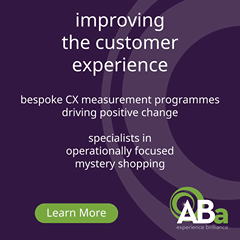Responsible business: Uncovering the concept of ‘bluewashing’
By Yasmina Bugel at Irwin Mitchell
The term ‘greenwashing’ is widely recognised in relation to Environmental Social Governance (ESG). In short, it is a term used to describe a deceptive practise whereby corporates provide false or misleading claims about their environmental impact to make them appear to be implementing environmentally friendly practises.
A more recent, albeit less familiar concept, is that of ‘bluewashing’.
Whilst greenwashing has an environmental focus, bluewashing is more concerned with social issues, including modern slavery, labour practises and diversity within corporates. Bluewashing refers to a situation where an organisation uses their membership or involvement in an initiative that promotes corporate social responsibility (CSR) to detract from the fact that they are not actually implementing these practises themselves. Instead, many corporates use their membership of ESG initiatives as a tick-box exercise to capture consumers, without incorporating their values behind the scenes.
This article will further consider the term bluewashing and some indicators to look out for.
United Nations Global Compact
A key example of bluewashing can be seen following the introduction of the United Nations Global Compact (“UNGC”). The UNGC is an initiative which encourages corporates to implement sustainability practises and social responsibility policies into their businesses. Many organisations signed up the UNGC without actually adhering to its humanitarian framework and the key principles it aims to promote (Human Rights, Labour, Environment and Anti-corruption). Such organisations therefore present a false narrative that they are committed to social responsibility but fail to deliver the changes required to meet the UNGC’s principles.
Whilst the UNGC stands for humanitarian change, it is important to note that it is non-binding and has been criticised for failing to hold its signatories accountable. This is because when it was introduced, there was no requirement for companies to provide substantial evidence that they were actually implementing steps to increase social responsibility and placing human rights at the forefront of their agenda.
Without being subject to any real form of monitoring or scrutiny, companies were provided with an open gateway to “bluewash” their credentials and practices.
How can we spot bluewashing by companies?
Looking for gaps in information provided by companies about their environmental efforts is a good indicator as to whether companies may also be bluewashing their credentials. Consider whether companies are using buzzwords to portray themselves as “eco-friendly” and “socially responsible”, do they explain how and where their products were manufactured, the materials that were used in the production and who the products were made by? Deliberately omitting this sort of information falls under the remit of bluewashing as it does not necessarily present the true picture behind the product or company itself.
Secondly, is there available data that substantiates the company’s claim about being environmentally and socially responsible? A lack of evidence could be a big indication that companies are falling short of the policies they claim to have implemented. It is therefore important that companies are challenged on their compliance with the ESG initiatives they promote themselves as being engaged with and part of in order to reduce the prevalence of bluewashing.
We expect to see an increase in bluewashing claims as companies strive to stay one step ahead of their competitors.














